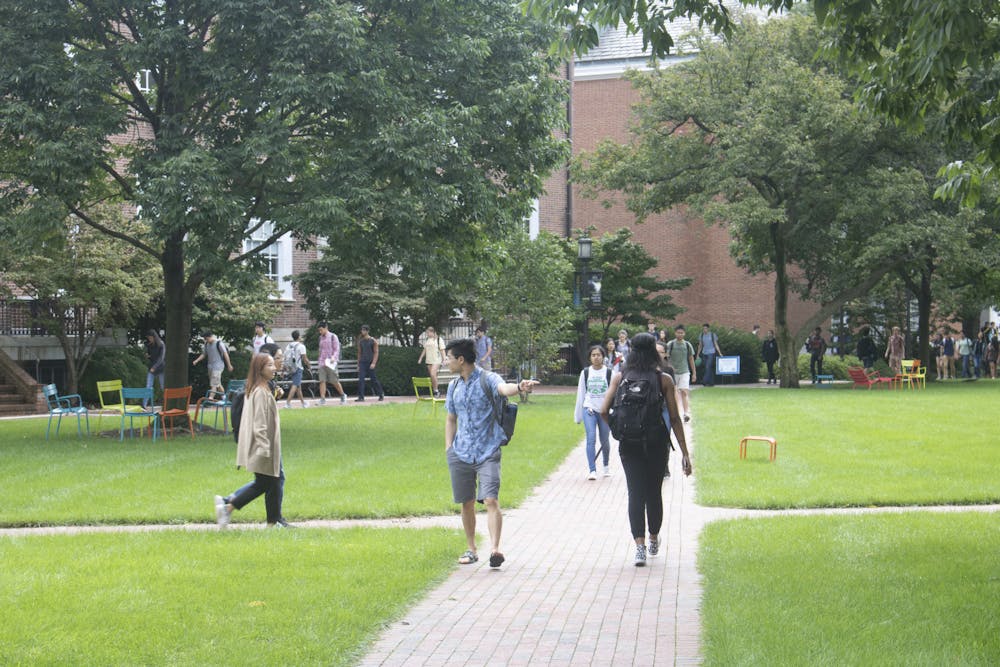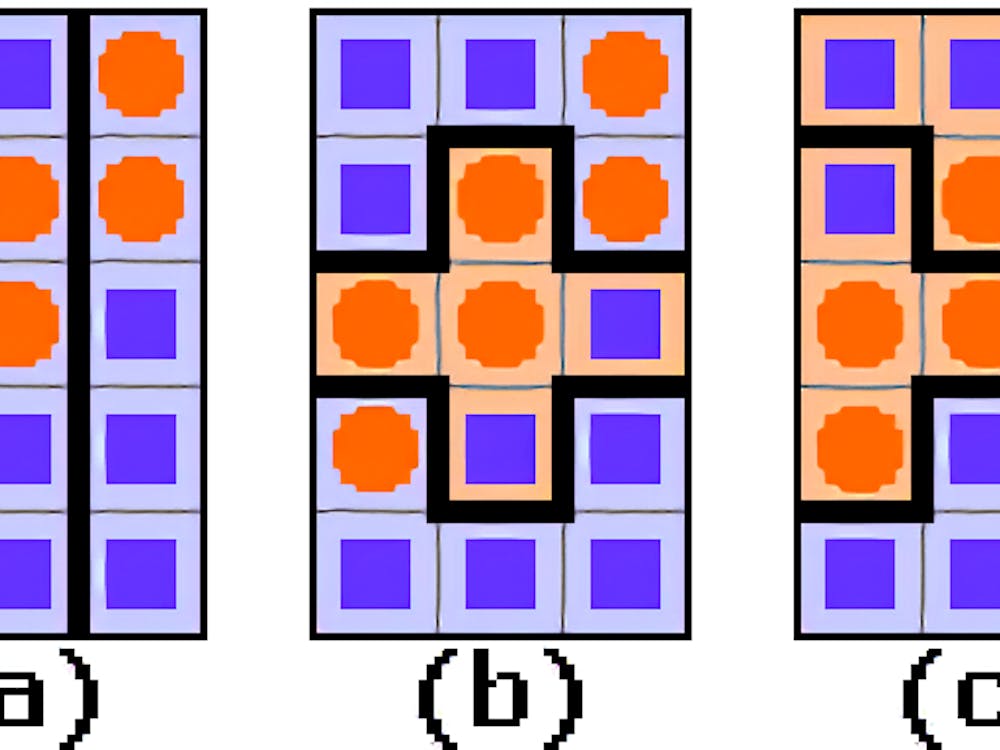On Jan. 15, Housing Operations announced that regular guest and open-access policies would be suspended for residential students. While this change is temporary at present, expiring after Feb. 6, it marks a stark departure from the University’s previous endeavors to protect students from COVID-19 while maintaining some form of social life.
In addition to the recent switch from indoor dining to grab-and-go operations, there is now virtually no way to meet in person with undergraduate students from other dorms outside of the library, the Rec Center and shared classes. The frigid weather trends prohibit most outdoor gatherings, and the lack of a student center at present prohibits whatever indoor gatherings could take place outside of dorm common areas.
I was motivated to write this Op-Ed due to the immense burden this policy places on first-year students and because temporary measures have the potential to be extended continually.
The Omicron variant of SARS-CoV-2 is a huge threat to student and community health. I applaud the University’s initiative in upgrading masking requirements. This will hopefully prove to be an effective means of cutting down transmission. The American Conference of Governmental Industrial Hygienists estimated (based on statistics from before the Omicron variant was dominant) that it would take two individuals wearing fit-tested N95 respirators 25 to 25,00 hours to transmit an infectious dose of COVID-19.
Given this change, which will hopefully minimize the transmission risk between two masked people, the University’s decision to ban all cross-dorm guests and unilaterally end the open-access policy is a step too far.
First and foremost, it is unnecessary. Hopkins has already set up a twice-weekly testing schedule, eliminated cafeteria environments, mandated boosters and made effective masking a requirement. The fact that the University has the confidence to continue to host in-person classes that can seat as many as 50 people in the same room is a testament to the efficacy of these pandemic mitigation measures. These classroom policies undermine the argument that three guests in a dorm room (the previous limit) present a threat to student health.
Furthermore, students with disabilities that affect their mobility will have to trek to common spaces if they want to meet up with friends instead of being able to meet them in their dorm. Homewood Campus is not an exemplar for accessibility due to its irregular terrain and brick pathways. With the increase in snowfall and potential for ice on surfaces, those with disabilities at Hopkins will be disproportionately affected by the guest policy.
The new policy also threatens to contribute to further deterioration of student mental health. Hopkins is an academically rigorous and demanding school. The upcoming semester will be no different. However, what does stand to change is what limited prospects exist for blowing off steam: chatting in a dorm room with friends, meeting new people or working on a class project late into the night. All of these essential elements of Hopkins student life are to be taken away without replacement. Friend groups that spanned multiple dorms and met in common rooms or courtyards under the previous open-access and guest policy will be upended.
The restrictions on guests are an incredible and invasive barrier to any and all relationships that have sprung forth on campus or with students from other schools. As the exact wording of the policy states, “Residents may not host guests in suites/rooms.” Therefore, with the exception of those rooming with a significant other, any expression of sexuality is essentially impossible. Especially for queer students, who might have not had the ability to seek out partners due to growing up in restrictive or anti-LGBTQ+ environments, college is the one place where you can escape myths pertaining to the sexual experience and actually figure out who and what you love. Hopkins has shut off that escape.
As more stringent policies are put in place, students may simply decide to leave campus more often and visit unmonitored off-campus spaces. These spaces are significantly less safe than common areas in dorms supervised by security officers and resident advisors.
During one of the most distressing periods in recent history, we found a way to forge a unique college experience amid a new normal. The prohibition of any and all guests stands to knock down all of that progress.
I do not believe that the changes in housing policy were made with ill intention. The Housing administrators care about student health, and a conversation that other Student Government Association (SGA) members and I had with them last semester made their dedication to the cause clear. However, I also believe that the wonderful students who populate this campus should be allowed to safely retain a social life.
Jackson Morris is a freshman studying Biomedical Engineering and Chemistry from Omaha, Neb. He is an SGA senator for the Class of 2025.





